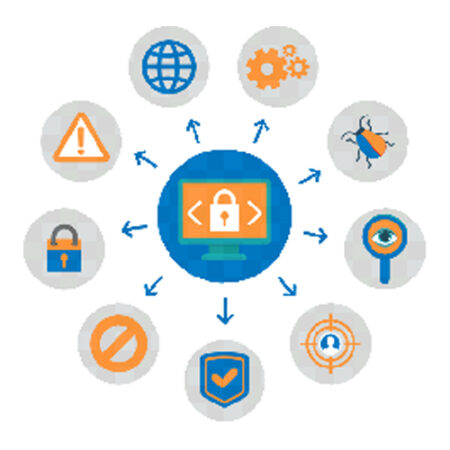HIPAA
The Health Insurance Portability and Accountability Act was developed to protect the privacy of health information of individuals available with businesses. Before HIPAA there were no accepted security standards for safeguarding the information around the health of an individual.
While this was happening new technologies were coming to the fore relying increasingly on the use of electronic systems to store information.
The increased adoption of technology to store data regarding individual ailments has also brought to attention a variety of security risks that it poses. The major goal here is to protect the privacy of the individual while also allowing businesses to adopt new technologies.
HIPAA has two primary purposes. The first is to ensure that the workers who change or lose their job are provided continuous health insurance. The second is to reduce the cost of healthcare by turning to electronic transmission of administrative and financial transactions.

The standard has been put in place to ensure a robust technological backbone for all the health details of individuals, while also ensuring that the privacy and security of this information.
This standard is not just a recommendation, it is a necessity for entities that are covered or are associated businesses. This requires your patient data security management is in place and is optimized for the risks posed in today’s day and age.
Below are some of the key benefits of HIPAA:
- Engenders the right culture and understanding of the handling of patient information
- Helps create the first line of defence in the form of employees that are informed and aware of the necessary practices to protect the privacy and security of a patient
- Helps foster a culture of careful handling of PHI or patient health information and increases the safeguards around all patient information
- Reduces executive and organisational liability
- Helps protect the staff and the organisation by providing adequate training on how to handle all patient information coming their way
- Helps differentiate your business from others considering that HIPAA compliance is seen as more secure
- Reduces errors in information transmission and improves the overall quality of care that is provided to patients across the board
Any entity, business or organization that deals with patient health information, or PHI, should be ideally accredited with HIPAA. These could be any of the following: Healthcare providers including doctors, psychologists, dentists, nursing homes etc. come under this grouping.
Insurance companies or organizations providing health plans, company health plans, HMOs, government healthcare programs, or even military healthcare programs could use this standard certification.
Businesses or organizations that clear a lot of information related to healthcare from another organization could also require having this certification.
Related Services

ISO 20000:2018
ISO 20000:2018

ISO 27001:2013
ISO 27001:2013

ISO 27701:2019
ISO 27701:2019

ISO 22301:2018
ISO 22301:2018

